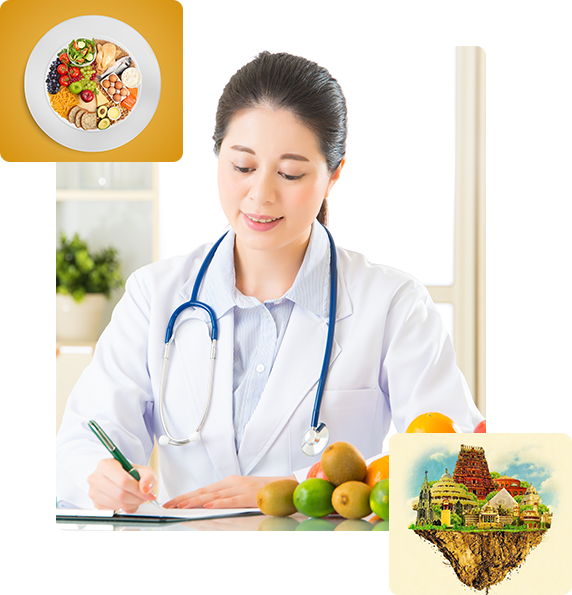Postpartum Nutritionists

Contact Us
Eating well is not only important during pregnancy but also after childbirth. Proper nutrition is essential for recovery after delivery. Nourishing your body with the right foods is vital for a faster postpartum recovery. New mothers often overlook their health while taking care of their newborns.
Eating a nutritious meal can provide mothers with the energy to take care of their babies and also ensure that they receive nutrients while breastfeeding. Consuming nutritious food post-pregnancy can accelerate recovery, promote milk production, and enhance overall well-being. Breastfeeding mothers require 300-400 extra calories per day and this should come from eating a balanced diet. Opting for nutrient-rich foods for those extra calories ensures that you get adequate energy and nutrition to produce milk and reduces unnecessary weight gain.
Key Nutrients for Postpartum Healing
Give importance to making healthy choices that can boost milk production. Choose foods high in protein like lean meat, eggs, dairy, beans, lentils, and low-mercury seafood. Make sure to choose different types of whole grains, along with a variety of fruits and vegetables
A nutritious diet should include the following:
- Iron and protein-rich foods: Protein and iron can be found in animal offals, red meat, poultry, and seafood. They play a crucial role in recovery and compensating for blood loss after childbirth.
- Oily fish: A great choice for protein and essential fats like EPA and DHA is oily fish such as salmon, sardine, trout, or mackerel. These nutrients are vital for your baby’s brain development and can potentially help prevent postpartum depression. To meet the recommended intake, aim for 2 servings of fish per week, each about the size of your palm (90g or a quarter plate portion).
- Dairy foods: Calcium and vitamin D, found in dairy products like milk, cheese, and yogurt, are crucial for the bone health of both you and your baby.
- Whole grains carbohydrates: Brown rice, oats, and whole-wheat breads are whole grain carbohydrates that boost energy levels and support high-quality milk production for your baby. These whole grain options are packed with essential nutrients like folic acid, iron, and fiber for the health of both your baby and you.
- Plant-based sources of iron: If you’re looking for plant-based sources of iron, consider dark green vegetables, tofu, soya, legumes, pulses, and brown rice. Iron-rich snacks like nuts, seeds, raisins, and prunes are a great choice. Keep in mind that iron from plant-based sources is not as easily absorbed by your body as iron from animal sources. Thus, if you’re on a vegetarian or vegan diet, you’ll need to consume a large amount of these plant-based foods to ensure adequate iron intake.
- Vitamin C: Consuming vitamin C-rich fruits and vegetables aids in the absorption of iron from your diet. Oranges, papaya, guava, kiwifruits, mangoes, and strawberries are all excellent sources of vitamin C. Vitamin C can also be found in vegetables like red and green bell peppers, dark green leafy vegetables and tomatoes. Consuming enough vitamin C is important for your body to better absorb iron from food. If you follow a vegetarian or vegan diet, vitamin C is crucial because the iron from plant-based foods is less readily absorbed than that from animal-based foods.
- Choline: Babies’ brain and nervous system development are influenced by this nutrient found in breast milk. To meet the needs of their baby and replenish their own stores, lactating women need approximately 550 milligrams per day. Women who don’t take folic acid supplements are at a higher risk of getting too little. Choline can be obtained from a variety of foods including meat, poultry, eggs, fish, dairy, seeds, cruciferous veggies, certain beans, nuts, and whole grains.
Whether or not you’re breastfeeding, it’s crucial to stay well-hydrated. To avoid dehydration, try to consume eight to 10 eight-ounce cups of water daily, including water from fruits and vegetables. Even if your baby is no longer breastfeeding, it’s important to drink eight to 10 glasses of water daily for postpartum recovery and overall well-being.


Promoting Milk Production
Breastfeeding operates on a supply and demand basis, so the more frequently you nurse your baby, the more milk your body will produce. The presence of plant estrogens and other compounds in vegetables, whole grains, and herbs may enhance milk supply. These are known as galactagogues. Popular galactagogues include whole grains, protein-rich foods, legumes, leafy green vegetables, fennel seeds, nuts, garlic, ginger, fenugreek seeds, sesame seeds, and flaxseeds.
These foods have been used for centuries in various cultures. When it comes to supporting milk supply, a healthy diet is key, regardless of galactagogue foods. While food is often emphasized for increasing breast milk, beverages are equally important. It is important to consume sufficient fluids to support breast milk production, as it is composed of 87% water. When breastfeeding, feeling thirstier than usual is your body’s signal to drink more.
Sample Postpartum Meal Plan by Postpartum nutritionists
If you’ve been mindful of your diet during pregnancy, chances are your fridge and pantry are filled with an abundance of nutritious postpartum foods. This is an example of what a typical day of meals could look like:
- Breakfast: Start your day right with a comforting bowl of oatmeal, topped with a generous amount of low-fat milk. For additional vitamins, potassium, and fiber, add half a cup of melon.
- Lunch: Opt for whole grain bread with light tuna, celery, and hard-cooked egg (a great source of choline). Add vitamin A-rich crispy romaine lettuce and vitamin C-packed tomato slices on top.
- Dinner: Pick either chicken or beef for the stir-fry. Combine a variety of vegetables with 2 ounces of meat to make a nutritious meal. Include healthy broccoli, cabbage, red bell pepper, and carrots. Enhance the dish further by pairing it with 1/2 to 3/4 cup of cooked brown rice.
- Snacks: Opt for snacks between 200 and 300 calories to increase your energy levels. Combine frozen berries and almonds with low-fat Greek yogurt for a tasty treat.
Taking care of your body during the postpartum period is crucial for your well-being and your baby’s growth if you’re breastfeeding. The food that breastfeeding mothers consume significantly influences the production and quality of their milk. When it comes to the best foods for mothers and children.









